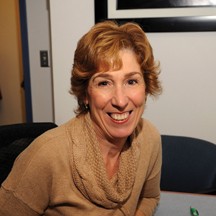Better Solutions For Better Hearing

By Catherine M. Marino, Au.D.
Hearing solutions that help you hear your best in all situations are now better than ever! Improved sound quality and enhanced features that automatically adapt to dynamic listening situations are the result of further developments in digital technology. The trick is finding the most appropriate solution to meet your needs and being guided through the selection and adaptation process by a knowledgeable and caring professional.
The first step toward hearing your best is to have a comprehensive audiological evaluation performed by a licensed audiologist. Types and degrees of hearing loss differ and require individualized solutions. Once any medical contraindications for audiological treatment are ruled out, the audiologist will delve deeper into your individual listening needs and develop a customized hearing treatment plan.
The good news is that today’s technology not only can help restore those missing sounds but also employs an adaptive process for reintroducing them. This gives the auditory system time to organize these new sounds for maximum benefit and minimum annoyance.
Restored Audibility for Speech
A major goal in most treatment plans is to restore your ability to hear all the sounds of speech. Frequently, hearing loss in the high frequencies may be so severe that critical consonants for speech understanding, such as, “s,” “f,” “t” and “sh” can still go undetected. Through a technique called frequency compression or frequency lowering these sounds are engineered to be detected by the inner ear where there are healthier sensory structures to receive and transmit these important sounds to the brain.
No More Whistle!
Remember that embarrassing whistle that everyone but the hearing aid user could hear? It is now a thing of the past so long as the hearing aids are properly selected and programmed. Most manufacturers use vastly improved technology that now allows needed high frequency gain without the whistle.
Hearing Better in Noise with Automatic Directional Microphones
When you are ready for more demanding listening situations, focus on whom or what you want to hear. The hearing aids are designed to help you do just that. They are constantly analyzing the sound environment and in most cases are programmed to automatically switch on directional microphones when there is background chatter.
More Comfort in Background Noise
The purpose of most hearing aid programs is to help you hear speech more clearly in any situation. However, when there is no speech present, many hearing aids will offer added relief by reducing the volume of background noise further.
Music Program
Many hearing aids are also designed to detect when music is the primary signal in the environment. This allows the circuitry to process music so that it can be enjoyed with all its natural sounds.
Wind Suppression
Ever hear the sound of someone blowing on a microphone? Annoying wind noise can now be suppressed so that you can continue to hear conversation effortlessly when wind is present.
Sound Generators to Treat Tinnitus
Most tinnitus treatment protocols use sound to help habituate the annoying sounds of tinnitus. The newest high technology hearing aids now include the option of accessing customized sound therapy directly from your hearing aids.
Wireless Connectivity
Would you like a clear signal from your cell phone, TV, stereo or spouse without noise interference? Now you can have it. Most hearing aids today are compatible with wireless accessories that give you direct access to almost any sound source.
Bottom Line
There is a solution for almost every type of hearing problem and lifestyle. The sooner you receive hearing help, the sooner you can resume enjoying all your favorite activities again.
The Riddle Difference!
Following a comprehensive audiological evaluation, listening needs assessment, and live hearing aid demonstration, the audiologists at Riddle Hospital will offer a hearing treatment plan that is specifically designed for your individual needs and budget.
For more information or to schedule an evaluation or treatment, contact the Audiology Department at Riddle Hospital.
Barbara J. Madden, Au.D.
Doctor of Audiology/Director
Catherine M. Marino, Au.D.
Doctor of Audiology
Denise E. Stewart, M.S.
Clinical Audiologist
Lisa C. Mackenzie, M.S.
Clinical Audiologist
RIDDLE HOSPITAL
Audiology &
Hearing Aid Center
1118 West Baltimore Pike
Suite 207
Media, PA 19063
(484) 227-3200-phone
(484) 227-3265-fax
www.mainlinehealth.org/RiddleAudiology


